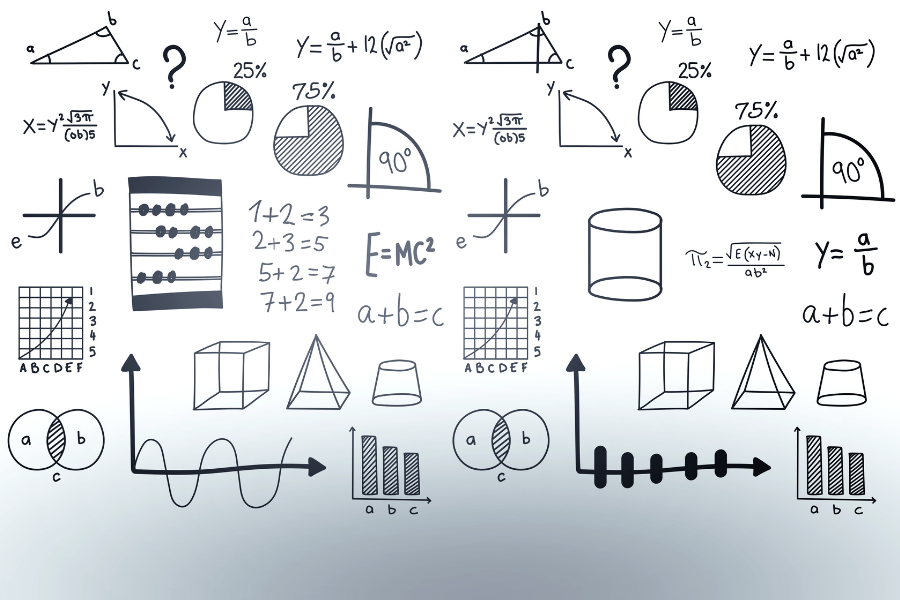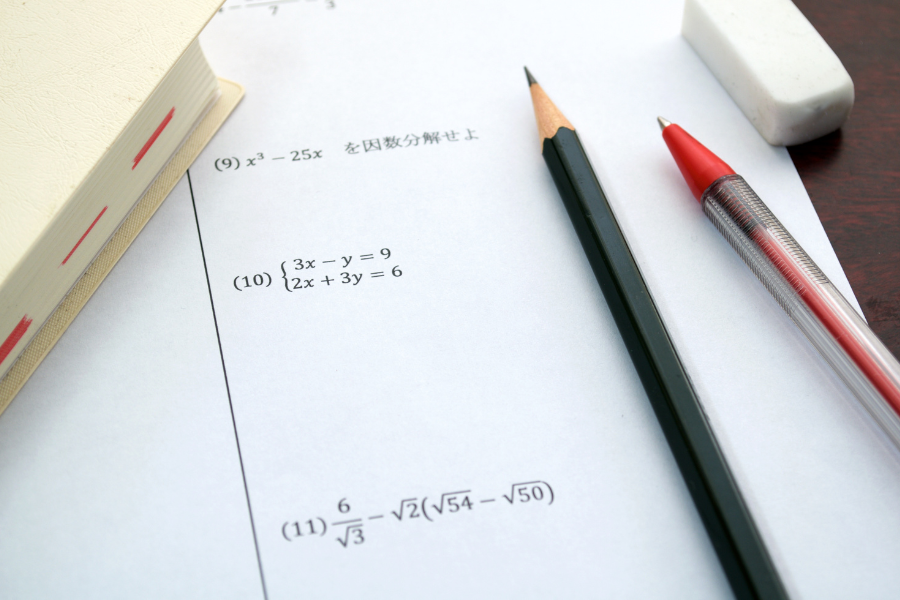GCSE Maths Revision – The Complete 2025 Guide
Why GCSE Maths Matters More Than Ever
For many families, GCSE Maths is the subject that casts the longest shadow over Year 10 and Year 11. Employers, colleges, and universities all treat it as a gateway qualification. Apprenticeships often list it as a minimum requirement. Parents know that a strong grade in English and Maths is the foundation for future choices, while students often feel it’s the one subject they “just have to pass.”
Yet this importance creates pressure. It’s no secret that GCSE Maths is the exam that worries students most. In fact, surveys show it’s consistently ranked the subject students feel least confident about. This isn’t because they can’t do it — it’s because Maths is a skill that needs regular practice. If that practice hasn’t happened yet, revision season can feel overwhelming.
But here’s the reassuring truth: any student can make real progress in GCSE Maths with the right approach. Revision doesn’t have to be hours of staring blankly at a textbook or endlessly copying notes. With a clear structure, the right resources, and some expert guidance, it’s possible to go from feeling “stuck” to sitting the exam with confidence.
This complete 2025 guide brings together everything students and parents need: how the exam works, the best revision methods, key topics to focus on, and common mistakes to avoid. Along the way, we’ll show how Bright Teach can provide the support many families are looking for — and how you can try it all with a free two-week trial.
Understanding the Exam Boards
One of the first things parents often ask is: “Does the exam board matter?” The short answer is yes. While the core content is the same across the country, each board has its own style and emphasis.
AQA GCSE Maths
AQA’s approach rewards method. Even if a student doesn’t reach the final answer, showing working can pick up valuable marks. Their three papers (one non-calculator, two calculator) cover the full range of topics. For students who get nervous in exams, AQA’s gradual build-up of difficulty can be reassuring.
AQA also offers a Further Maths GCSE, aimed at high-achieving students who want to push beyond the standard curriculum. This can be a great way to prepare for A-Level Maths.
Edexcel GCSE Maths
Edexcel is the largest exam board for Maths in England. Its three-paper format is similar to AQA’s, but it has a reputation for including questions that apply Maths to real-life contexts — such as interpreting graphs, working with data, or problem-solving in word problems.
Students often describe Edexcel papers as “straightforward but sneaky.” The content is clear, but the phrasing can catch students out if they haven’t practised with Edexcel GCSE Maths past papers.
OCR GCSE Maths
OCR’s exams are also split across three papers (one non-calculator, two calculator). Their style often leans towards testing reasoning: not just what’s the answer? but why is that the answer? Students are expected to explain and justify steps.
OCR is sometimes perceived as the most “wordy” of the exam boards, meaning students with strong comprehension skills may have an advantage.
So Which Exam Board Is Best?
The truth is, none of them is easier or harder across the board — it depends on the student. The most important step is to practise with past papers from your specific board (whether that’s AQA, Edexcel, or OCR). Each exam board publishes a full archive of past papers, mark schemes, and examiner reports. These are gold dust for revision, because they reveal what examiners are really looking for.
How to Revise GCSE Maths Effectively
Parents often tell us: “My child spends hours revising, but their grades don’t improve.” The issue is usually not effort, but method. GCSE Maths isn’t about memorising chunks of information — it’s about applying skills. That means the most effective revision strategies look different from those in essay-based subjects.
Create a Revision Timetable That Works
A well-structured timetable prevents last-minute panic. Instead of “doing some Maths” in vague blocks, break revision into specific topics. For example, Monday could be algebra, Tuesday geometry, Wednesday statistics. Over a fortnight, this ensures full coverage without overload.
Students often ask how much time they should revise. There’s no magic number, but consistency beats cramming. Even 45 minutes of focused practice each day is more effective than a five-hour binge once a week.
Active Recall Beats Passive Reading
One of the most common mistakes is simply re-reading notes or highlighting textbooks. This feels productive but doesn’t actually test memory. Instead, students should practise retrieving knowledge. That means answering questions without looking, then checking the solution.
GCSE maths past papers are ideal for this. Start by working through questions untimed. As confidence builds, shift to exam conditions. Mark schemes should be studied carefully — they show exactly how marks are awarded.
Formula Sheets and Flashcards
Students are given a formula sheet in exams, but not every formula is included. That’s why it’s essential to know which formulas must be memorised. Creating flashcards for trigonometry rules, circle theorems, or probability equations is a proven way to strengthen recall.
Some students like to stick key formulas above their desk or even on the fridge. Seeing them daily helps cement them in long-term memory.
Work With Weaknesses, Not Just Strengths
It’s natural for students to revise what they enjoy. Someone confident in algebra may spend hours on simultaneous equations, while avoiding probability because it feels hard. The problem? Exams don’t let students skip questions.
A strong revision plan leans into discomfort. Identify weak topics (by using practice tests) and prioritise them. Improvement in weaker areas can shift grades more than polishing strong ones.
Don’t Underestimate the Role of a Tutor
Some students can structure their own revision successfully. Many, however, benefit from the accountability and expertise of a GCSE maths tutor. A tutor can quickly identify gaps, explain concepts clearly, and give personalised feedback. Online tuition makes this more flexible than ever, with platforms like Bright Teach offering both live lessons and interactive resources.
The Key Topics Every Student Needs to Master
The GCSE Maths syllabus is extensive, covering everything from basic number skills to advanced problem-solving. But some topics consistently carry the most weight in exams.
Algebra
From solving linear equations to manipulating quadratics, algebra underpins a huge portion of the exam. Students must be comfortable with rearranging formulas, factorisation, simultaneous equations, and functions. Iteration and sequences often appear in Higher papers, while foundation papers emphasise simpler algebraic manipulation.
Geometry and Trigonometry
Circle theorems, transformations, and constructions often trip students up. Vectors — another geometric concept — are a Higher-tier favourite. Trigonometry, meanwhile, crops up regularly in both 2D and 3D contexts. Understanding sine, cosine, and tangent (and when to use each) is vital.
Probability and Statistics
Probability questions range from simple fractions to multi-step tree diagrams. Statistics covers interpreting charts, calculating averages, and cumulative frequency. These topics reward careful reading, as many marks are lost through misinterpreting data.
Number and Ratio
Even Higher students can lose marks on basics: fractions, percentages, standard form, and ratio. Foundation papers in particular lean heavily on number skills. Practising these until they are second nature is essential.
Graphs and Functions
From linear graphs to quadratics and cubics, graph work is a major part of the course. Functions, transformations, and gradients link into algebra, making this a crossover topic that examiners love.
By focusing revision around these key themes, students can ensure they are well-prepared for the majority of marks available.
Common Pitfalls Students Should Avoid
Despite best efforts, many students lose marks in ways that have little to do with ability. Here are the most frequent mistakes:
Not showing working. Examiner reports repeatedly stress this. Even if the final answer is wrong, clear method can earn partial credit.
Misreading questions. Under exam stress, students often rush and miss key details like “to 1 decimal place” or “show to 3 significant figures.”
Poor time management. Spending ten minutes wrestling with the hardest GCSE maths question means less time for easier marks elsewhere.
Formula confusion. Mixing up area and circumference formulas, or forgetting which trig ratio applies, is a common downfall.
Ignoring weak topics. Students who “hope it won’t come up” often find it does. Leaving gaps is risky.
Encouraging students to practise under timed conditions, check their answers, and review mistakes can transform these pitfalls into progress.
The Best GCSE Maths Revision Resources
With so many options available, it can be hard to know where to start. Here are some tried-and-tested resources:
BBC Bitesize GCSE Maths. Great for topic summaries and quick refreshers, though lighter for Higher tier.
Maths Genie. Free practice questions and worked solutions organised by topic. Excellent for building skill.
CGP Revision Guides. Student favourites thanks to their simple explanations and exam tips.
Exam board websites. Official past GCSE maths papers and mark schemes for AQA, Edexcel, and OCR.
Bright Teach. Combining the best of live teaching with interactive quizzes, Bright Teach offers a complete learning environment that adapts to student needs.
How Bright Teach Can Help
At Bright Teach, we understand the challenges students face. Many lack confidence, feel unsure where to start, or get stuck on tricky topics without anyone to ask for help. That’s why our approach combines:
Live online lessons with expert GCSE maths tutors who explain concepts clearly and at the right pace.
Interactive quizzes and practice papers that test knowledge actively, not passively.
Step-by-step solutions so students don’t just see the answer, but understand how to get there.
A supportive community where learners motivate each other, making revision less isolating.
Parents love Bright Teach because it provides structure without stress. Students love it because they see progress quickly. And you can try it all with a free two-week trial — the perfect way to see the impact without commitment.
Frequently Asked Questions
How many marks do you need to pass GCSE Maths?
A grade 4 (the standard pass) usually requires around one-third of total marks. In recent years, this has been roughly 120 marks across all three Foundation papers, though grade boundaries vary each year.
Is it possible to revise GCSE Maths in just four weeks?
Yes, with the right plan. A month-long revision strategy focused on daily practice, past papers, and weak areas can make a significant difference. Many students have boosted by a grade or more in this time.
Which topics are the hardest?
Algebra and trigonometry consistently top the list of difficult topics. However, for some students, statistics or geometry can be just as challenging. The key is identifying personal weak spots early.
Can adults retake GCSE Maths?
Absolutely. Many adults return to GCSE Maths for career or university entry. Options include evening classes, online courses, or platforms like Bright Teach. Retaking GCSE Maths online is more accessible than ever.
What’s the best way to use past papers?
Start untimed, focusing on accuracy. Once confident, move to timed conditions. Always mark using the official scheme and review mistakes — that’s where the real learning happens.
Final Thoughts
GCSE Maths doesn’t have to be the stressful mountain it’s often made out to be. With the right structure, resources, and support, every student can make meaningful progress. Revision isn’t about endless hours; it’s about smart practice, confidence-building, and avoiding common pitfalls.
If your child is preparing for the 2025 GCSE Maths exams, now is the time to start building a plan. And if you’d like expert guidance every step of the way, Bright Teach is here to help.
👉 Start your free two-week trial today and give your child the best chance of success in GCSE Maths.





